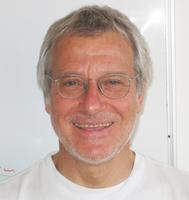Optimal planning and control of direct current lines in power systems
Josh Taylor – University of Toronto, Canada
Direct current transmission of electric power is becoming more and more common as power electronic converters improve. The advantages of DC over AC transmission include better wire utilization, decreased losses, and the ability to dynamically decouple neighboring grids.
In this talk, we first consider transmission system expansion with AC and DC lines. We model both voltage-sourced and line-commutated converters, AC to DC line conversion, and installation of reactive power support. Transmission expansion planning is nonconvex due to the power flow equations, discrete installation variables, and products between power flow and installation variables. We use convex relaxations and a physics-based approximation to obtain a mixed-integer second-order cone model, which can be solved using commercially available software.
In the second part of the talk, we look at control of DC-segmented power systems. DC-segmented power systems consist of multiple AC grids (e.g., microgrids, provinces, countries) that are only connected to each other by DC lines. We show that, due to the controllability of DC lines, DC segmented power systems are poset-causal. This makes the problem amenable to optimal decentralized control, which is intractable for general systems. We find in simulation that the optimal decentralized controller attains virtually the same performance as the optimal centralized controller.
Bio: Josh Taylor is an Associate Professor in the Department of Electrical and Computer Engineering at the University of Toronto. He received the B.S. degree from Carnegie Mellon University in 2006, and the S.M. and Ph.D. degrees from the Massachusetts Institute of Technology in 2008 and 2011, all in Mechanical Engineering. From 2011 to 2012, he was a postdoctoral researcher at the University of California, Berkeley. His research focuses on control and optimization of power systems.
Entrée gratuite.
Bienvenue à tous!
Lieu
CIM
Pavillon McConnell
Université McGill
Montréal QC H3A 0E9
Canada


